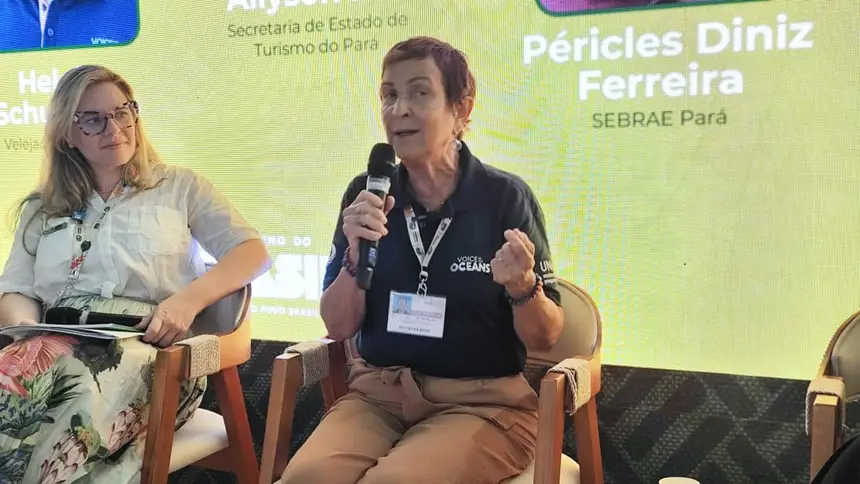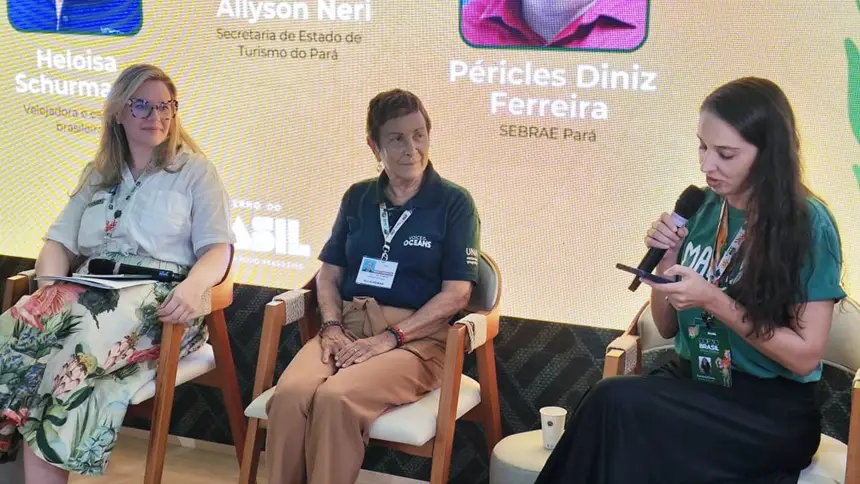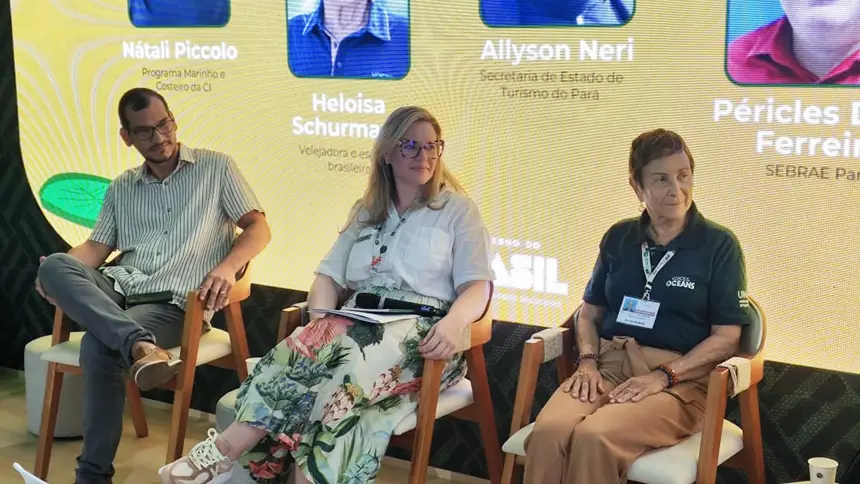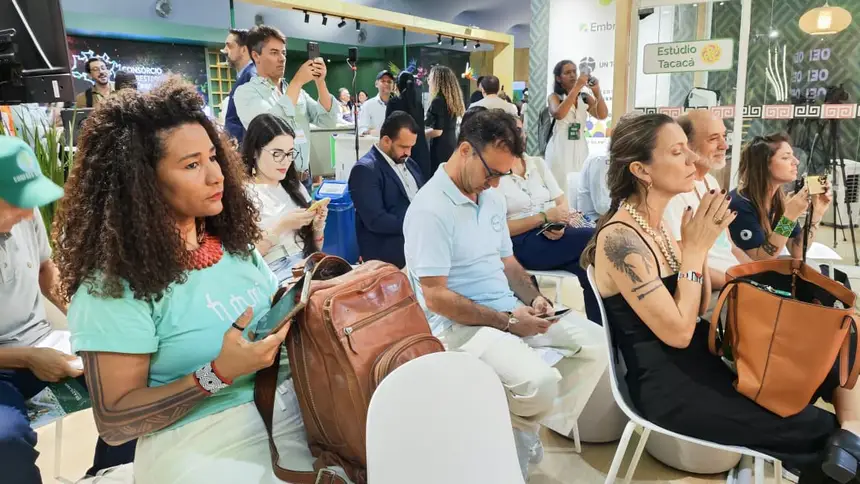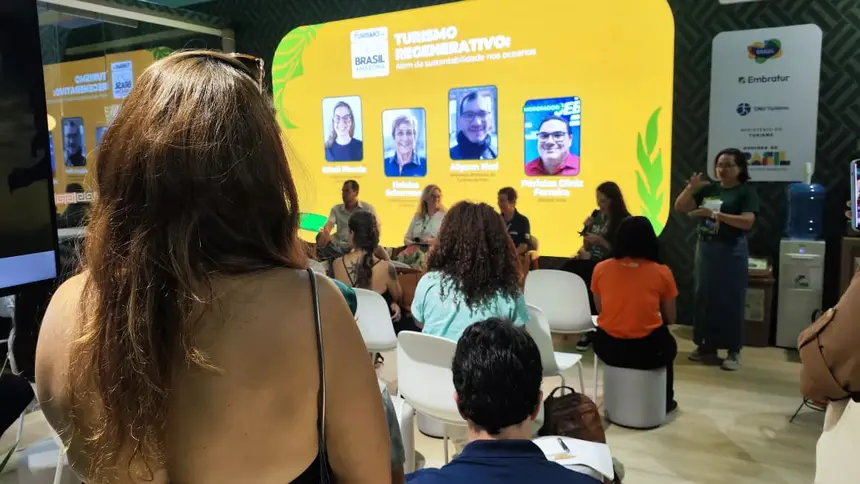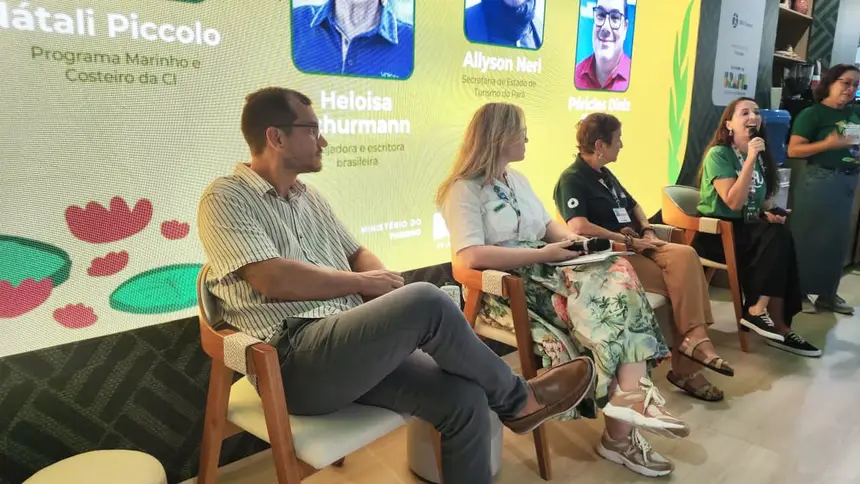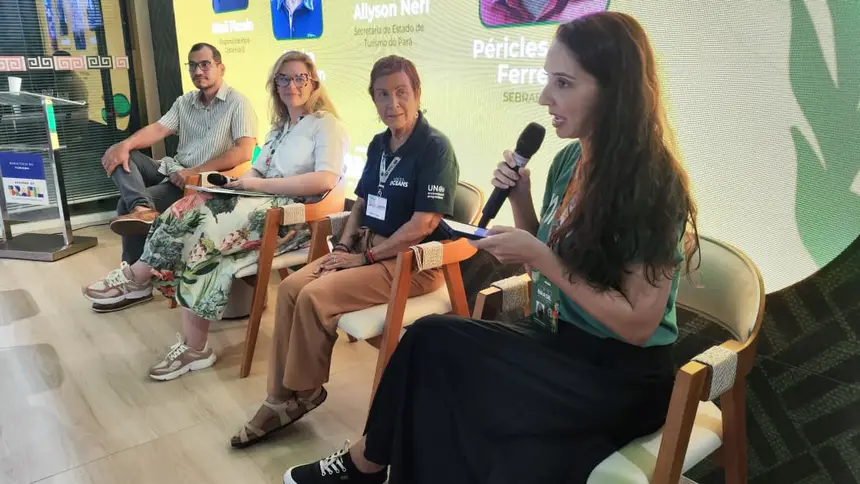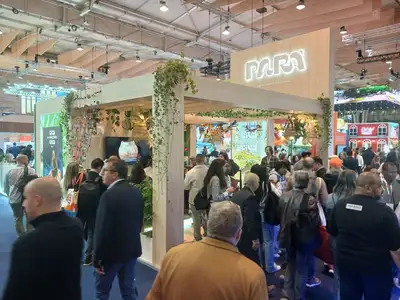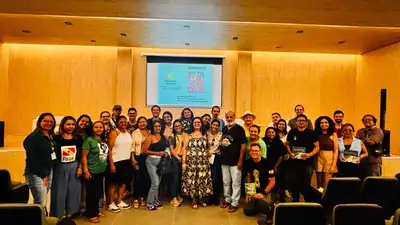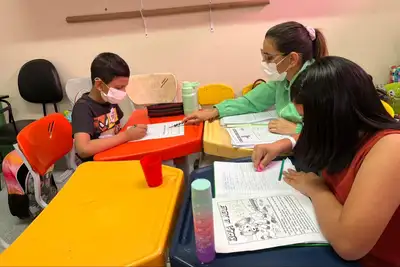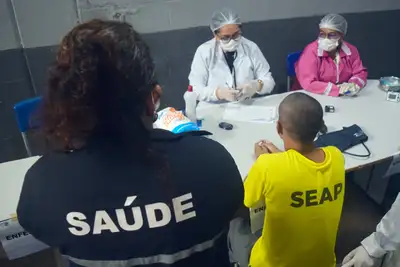Regenerative tourism sets the agenda for sustainable future during COP 30 in Belém
Event promoted by the Ministry of Tourism highlighted experiences that combine environmental conservation, social inclusion, and appreciation of traditional communities

On the afternoon of this Monday (11), in the Green Zone, at the "Discover Brazil" booth of the Ministry of Tourism (MTur), the panel "Regenerative Tourism: beyond sustainability in the oceans" was held, bringing together national reference names to discuss a new way of thinking about tourism: one that not only preserves but also gives back to nature and communities what is received from them.
Sailor and writer Heloisa Schurmann, who has been sailing the seas of the planet for over three decades, opened the debate with a moving account that touched the audience. "The ocean is our home," she said, recalling that over 35 years of sailing, she witnessed profound changes in coastal ecosystems and the way of life of riverside populations.

"Before, people would go to the beach and collect shells by the shore. Today, the water is at knee level. They ask why. That’s when we realized we needed to act, and we created the Ocean Voices project to raise awareness about what is really happening," she shared. For Heloisa, regenerative tourism is the step beyond sustainability: "it is the regeneration of nature, the invitation for tourists to participate, plant corals, preserve forests, and help local communities to rise again," she said.
The speech resonated with the experience shared by Nátali Piccoli from the Marine and Coastal Program of Conservation International (CI), who highlighted the example of the southern coast of Bahia as a territory where regenerative tourism is already a reality. "There, local entrepreneurs came together to transform the mass tourism model that pushed residents to the periphery and degraded the ecosystem. They created local governance and developed the Future Alliance manual, which guides responsible practices for lodging, food, and visitation," she explained.
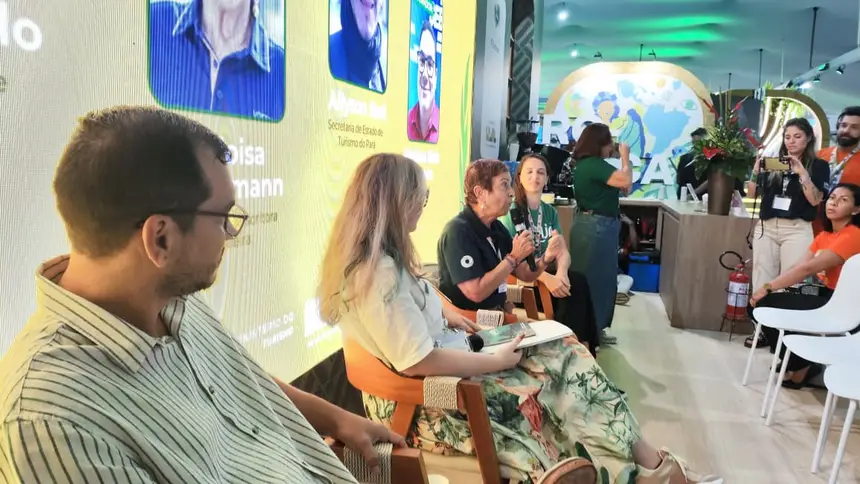
According to Nátali, the movement also generated economic impact: in 2024, tourism in the Abrolhos region generated around R$ 10 million, involving conservation, research, and whale watching activities. "It’s about learning, creating, and sharing knowledge, showing that regenerating is also about valuing people and their stories," she added.
Representing Pará, Allyson Neri, manager of the Tourist Products Directorate of Setur, highlighted the actions that the State has been developing to combine sustainability, inclusion, and appreciation of coastal communities. He emphasized the importance of the Blue Flag certification and mentioned the pilot project carried out in the Marine Extractive Reserve of Soure, in the Marajó Archipelago, where Setur implemented a sustainable ecological toilet model built in partnership with residents, using local materials and bioconstruction techniques. The initiative was a finalist for the Braztoa Sustainability Award and today inspires other regions of the State.
"This regenerative tourism not only regenerates the environment but also the people who live there. It involves the visitor and invites them to participate in solutions, to understand and value what is local," he stated.
For Allyson, the diversity of Pará represents a challenge and, at the same time, a unique opportunity for innovation. "We have over 500 kilometers of beaches, many of them river beaches, interspersed with mangroves. Our reality is distinct: we do not seek mass tourism, but a tourism that respects the limits of nature and the way of life of communities," he highlighted.
More than a panel, the debate was an invitation to action. As Heloisa Schurmann summarized, "no matter how many say there is no way out, what we have seen around the world is the opposite: entire peoples mobilizing to regenerate life. And tourism can be the great link of this transformation," she concluded.



